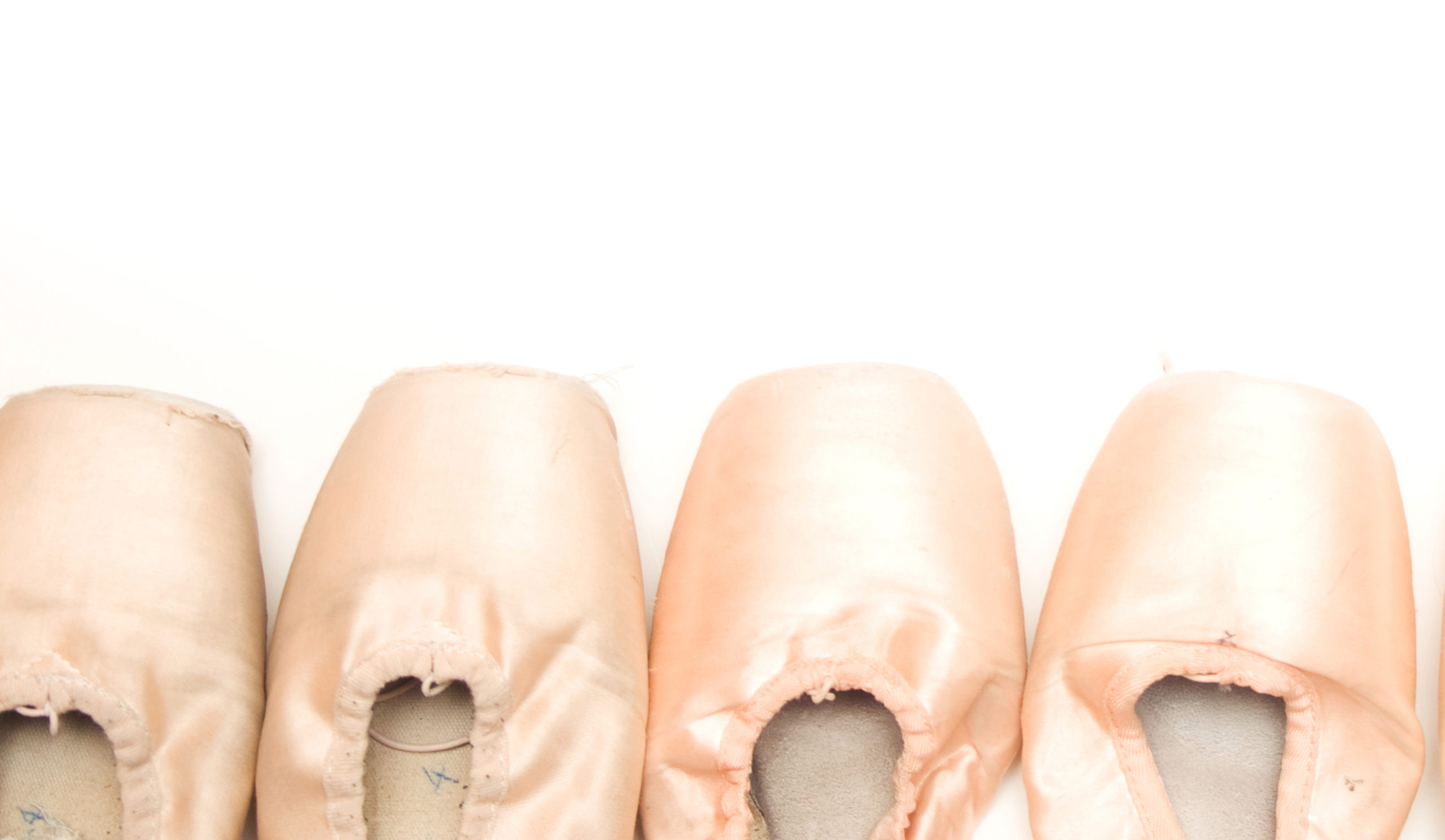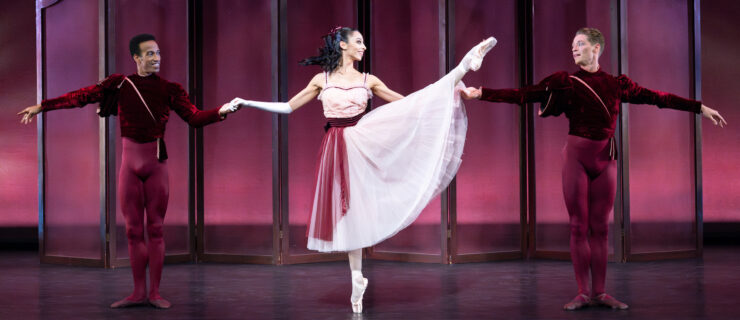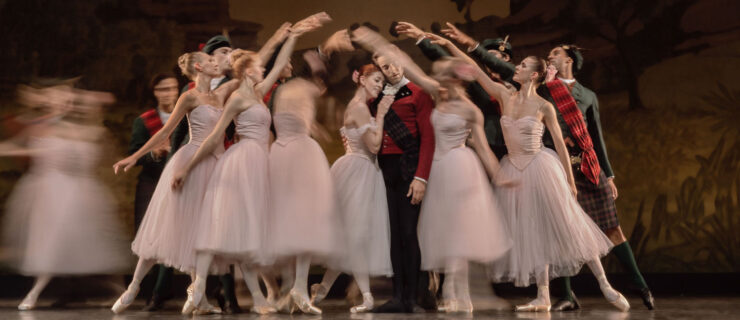Home Schooling: A Personal Decision
Kiara Howe, 14, lives in Olympia, Washington, about a two-hour drive each way from her ballet classes at Oregon Ballet Theatre. She believes her dreams of dancing for American Ballet Theatre would be even further away if she had to fit in her commute around a regular school day. Instead, Kiara learns reading, writing and arithmetic in her own home.
Home-schooled children do their academic studies at home under the instruction of a parent or professional tutor or teach themselves with the help of correspondence courses. Controversial and not supported by many traditional educators, home schooling has had little research to prove it’s good—or bad—for students. Plus, it doesn’t guarantee a professional career in ballet. It therefore remains a very personal choice.
In the world of ballet, which requires huge amounts of training time for a professional career that can start as young as age 15, home schooling can be a way for students to get an academic education and also devote more time to ballet.
“It’s pretty much the same as regular school, except it’s just me and the teacher,” says Chase Finlay, 14, a student at Ballet Academy East in New York City who spends three hours a day on Mondays, Wednesdays and Fridays with an academic tutor. “I have so much more time for ballet.”
This decision should not be made lightly, and those who opt for home schooling do so for many reasons. Not having to spend six hours a day in school means more time for private lessons or extra ballet classes. Home schooling is flexible, allowing dancers to get a jump on a long commute to ballet class or sleep in on days following late-night performances.
Teenage dancers, particularly boys, can be unhappy in a traditional school setting where teasing runs rampant. Home-schooled dancers say they have more physical energy than their peers in regular school and don’t have to worry about tests or doing homework at 11 pm.
“It freed up my schedule, allowed me to take company class, gave me more breaks. I took my schoolwork to the studio and did it around classes,” says Michael Bearden, 24, a soloist with Ballet West in Salt Lake City. “It was kind of like being a child actor, but not as glamorous.”
Realistic or not, some parents are looking to give their children any advantage possible when struggling toward that elusive professional ballet career and are willing to accept the risk of putting all their eggs in one basket.
“I had gotten good feedback from Erica’s ballet teachers,” says Mary Ellen Pereira of Long Island about her 16-year-old daughter, a student at Ballet Academy East. “They said she had a chance at a career. If this was a hobby for her, I would not go this route, but seeing she had the potential, ability and body to become a ballerina, I began to look into home schooling.”
Just a few years ago, home-schooled students were rare, most stayed home because of religious or moral considerations. But that’s changing. According to the National Center for Education Statistics, in 2004 about 1.1 million children (or 2.2 percent of all children aged 5 to 17) were home schooled, a jump of almost 30 percent from 1999.
Parents of ballet students say they did extensive research on the different curricula available and had endless talks with other parents who home school. Kristen Ni, 16, a student of Nutmeg Conservatory of the Arts in Connecticut, says her mother was against the idea until Kristen found a challenging correspondence program from Indiana University.
Chase’s mom, Jeanne Finlay, admits, “I was scared stiff.” She now feels the decision is working out well, not only for Chase, who is an A student, but also for his older sister, Page, now an apprentice with OBT. “I started ballet late, at age 10,” says Page. “With home schooling, I could take private class, and it was very beneficial to my ballet career.”
Even with sights set on becoming a professional dancer, parents and students alike admit the importance of academics. What about an injury? What if ballet just doesn’t work out? By keeping track of their work or taking correspondence tests, most home schoolers are able to get a certified high school diploma.
Home schooled since first grade, Ballet West’s Bearden was accepted at the University of Utah, but he says he found it difficult to adjust to “having a teacher and lots of assignments” and subsequently dropped out. But after five years as a professional dancer, he realizes the importance of an academic education, even to a dancer. “I see people retiring from the company at age 35, and they don’t know what they are going to do next. That will be me in 15 years,” Bearden says. “I need to get cracking.” He is now pursing a degree at a community college.
Some parents take their children out of regular school in pursuit of academic excellence. Phyllis Papa, director of Atlantic Contemporary Ballet Theatre in New Jersey, home schooled her twins, Janelle and Tamara de Ment. “I knew I wanted to be responsible for my children’s educations,” says Papa.
A member of ABT at age 15, Papa herself had quit school and continued her high school studies through correspondence courses. In teaching the twins and their two sisters, Papa wove together lessons in violin, math, reading, gymnastics, etiquette and history in a free-form approach that obviously worked for the twins, who graduated last year at age 18 from the Richard Stockton College of New Jersey. They are now both pursuing professional ballet careers.
“It wasn’t the way you know school. We learned from the minute we woke up till we went to bed,” Papa says. “The idea of teaching is to make it joyous, not about testing.”
But home schooling is not the answer for everyone. It’s frowned upon by the National Parent Teacher Association and the National Education Association. Many educators fear home schooled children miss out on social interaction with their peers, can become isolated or suffer academically from a lack of professional instructors.
Sharon Dante, founder and artistic director of Nutmeg Conservatory, has had many discussions with incoming students about home schooling. As a preprofessional boarding school, Nutmeg students have the option of attending the local Torrington public school system, which Dante highly recommends. She feels students need to be in a structured academic environment where they can benefit from the knowledge, nurturing and guidance of the entire school faculty.
With 40-plus years in dance education, Dante worries about ballet students put in an “incubator” in which their entire lives are centered around ballet.
“They need to meet people who are not dancers. Most want to be in a professional company, but we need to give them all the weapons we can to face the real world if that does not happen,” says Dante, who was a professional dancer and received a degree in business from Endicott College. “I like it when they have a somewhat normal life for at least part of the day. In my opinion, the students are much more healthy if they go to regular school.”
Those involved agree that home schooling is an individual choice that isn’t right for everyone. Even within families, sometimes one child is home schooled while siblings are not. If the child is not self-motivated, or is very outgoing and social, home schooling may not be the answer.
And, the dancers say, home schooling is just as demanding as traditional schools. Grammar and chemistry and algebra are all difficult, even if you get to sit on your bed and do it in your pajamas. “At first it sounded really easy,” Erica says. “But when I got the work, it wasn’t as easy as I thought. My mother is harder than most teachers I had before.”
Karen White, a former daily newspaper reporter, now writes for magazines, teaches dance in Taunton, MA, and performs in musicals with regional theater groups.





